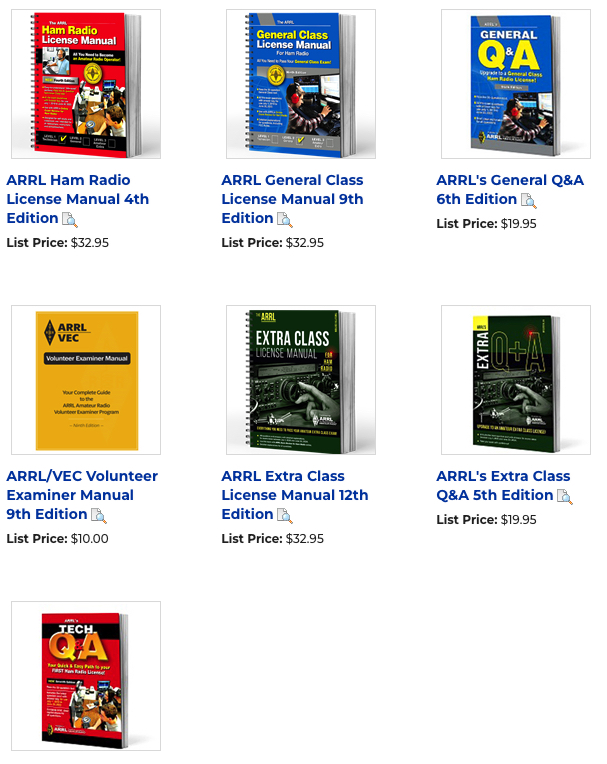Becoming a ham radio operator requires licensing by the Federal Communications Commission, otherwise known as the FCC. A license grant comes from an exam administered by the ARRL or other organization. The BBARC is an ARRL affiliated club and has an exam administrator, Charlie N5CET. There are prerequisites for gaining a license, but only the exam tests the candidate’s knowledge. There are no proficiency tests, such as the Morse Code test that use to be part of ham licensing.
Ham Radio License Classifications
There are three license classifications or levels. The first license is Technician, the starting point for every ham. The Technician exam has ten major topics the questions cover. Technician material is less detail than the other license classes, and the answers on the exam are more obvious.
Once a Technician license is obtained or exam passed, the next license exam can be taken. Hams refer to moving up as a license upgrade. The same ten topics of Technician are covered in more detail by General, and the exam answers do not have obvious wrong answers, so a more challenging exam. It is common for candidates to study for both exams and take them back to back at one exam session. Studying for General makes the Technician exam much easier.
With a General license, the next class is the top classification, Extra. This exam is much harder, has more questions, consists of math word problems, and requires memorizing formulas and much technical material. The Extra exam requires special preparation, and the Technician and General content does not help much.
Technician
The Technician license is able to operate on all VHF and higher frequencies, as well as very limited High Frequency (HF) privileges (CW only). Technicians typically start with 2m radio, the BBARC repeater system, and the 2m Net.
General
The General license has much greater privileges to operate on HF (below 30 MHz), in addition to the privileges of the Technician license. General is a big step up for HF operating by adding priveleges in SSB frequencies – phone or voice transmissions. General allows participating in the BBEN.
Extra
The Extra license is able to operate on all Amateur Radio Bands, adding more privileges to General class. The personnel administering license exams are Extra class.
Preparing for Exams
There are several ways one can accomplish their goals of becoming an Amateur Radio Operator and moving through the license classes. Self study is the most common, either using a License Manual or online resources. The ARRL online book store sells these licensing manuals.

Online Courses
Ham Test Online
This site can be found at: http://www.hamtestonline.com
With this site you can obtain all the help necessary to accomplish your goal. You can study for any of the three licenses, or all three if you wish. You set your pace, and with the exact questions used on the original ARRL License Exams, you are sure to pass. This site also issues the Clause that if you do not pass the exam; you can recoup your money. The length of using this site is for two years.
The National Association for Amateur Radio (ARRL)
This site can be found at: http://arrl.org/licensing-education-training
This site will offer an individual all of the advantages of study for any of the three License Classes.
There are also many other ways that you can obtain your wanted Amateur Radio License, and that is through one on one training with a fellow, already licensed Amateur Radio Operator. To help you find a mentor, you might ask around the local Amateur Radio Clubs that are in your area, such as the following:
Big Bend Amateur Radio Club:
Their web site is: https://bigbendarc.org
Midland Amateur Radio Club:
Their web site is: http://w5qgg.org
West Texas Amateur Radio Club:
Their web site is: http://wt5arc.org
There are many more Amateur Radio Clubs around the state as well as around the nation.
Last updated 4-23-2022
